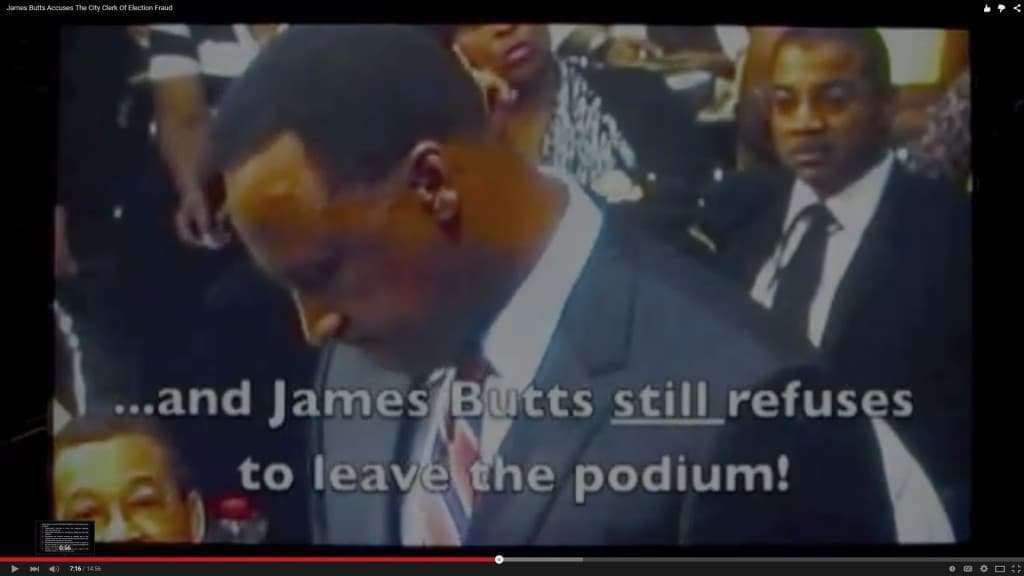The Volokh Conspiracy
Mostly law professors | Sometimes contrarian | Often libertarian | Always independent
City sues critic for supposedly infringing city's copyright by posting city council video clips (with commentary) on YouTube

Annenberg Media Center (Celeste Alvarez & Sara Tiano) reports:
The city of Inglewood is suing a longtime critic of the mayor and city officials, alleging he violated copyright law by using footage of council meetings in videos blasting them for abusing their power.
Joseph Teixeira, who calls himself Inglewood's Watchdog, is being represented pro bono by a defense team led by First Amendment specialist Tom Burke, a lawyer in Davis Wright Tremaine's office in San Francisco.
(Peter Scheer (First Amendment Coalition) seems to have first broken recently wrote about this story; UPDATE: the Los Angeles Times also posted on it earlier this morning. FURTHER UPDATE: It now appears that Randall Fleming at CityWatchLA first wrote about this in March.) Three of the videos are here, here, and here:
I've looked at Teixeira's motion to dismiss and Inglewood's response, and it seems to me the city is going to lose. First, County of Santa Clara v. Superior Court (Cal. Ct. App. 2009) suggests that California law generally does not allow cities to claim copyright in public records; and while the city claims that this provision is trumped by federal copyright law, I don't think the city is right - federal law treats local governments as political subdivisions of the state, and a state has the power to control what its subdivisions do (including which federal rights they claim).
Second, the use of the council meeting videos is fair use. It's political commentary that quotes the contents of the videos and comments on what is said there. The city claims that Teixeira has some commercial purpose for the videos (though the precise purpose is unclear from its papers, and Teixeira denies it); but the videos as posted on YouTube are not moneymaking ventures. The videos are fundamentally factual, rather than being creative expression, which makes the fair use case stronger. The videos take only portions of the whole city council meetings (though this factor is less significant when the defendant is commenting on the original works, and especially when the original works have so little original creative content).
And, most importantly, the videos don't compete with Inglewood's distribution of its videos. Under California public records law, the city must make public records "available to any person upon payment of fees covering direct costs of duplication," so there's no way that Inglewood can profit from distributing the videos in the first place, or even recoup the fixed costs of creating the recordings. Plus in any event, people who want normal Inglewood city council videos wouldn't find Teixeira's edited versions to be adequate substitutes, and vice versa. All these fair use factors cut in favor of Teixeira.
So I expect Teixeira to win promptly - and, quite possibly, to get attorney fees against the City of Inglewood. Defendants who win copyright cases may be available to recover attorney fees, especially when the plaintiff's case is as weak as this one. "[A] successful defense of a copyright infringement action may further the policies of the Copyright Act every bit as much as a successful prosecution of an infringement claim by the holder of a copyright," and offering attorney fees to prevailing defendants, the Court held, therefore promotes such successful defenses. And "[a]ttorneys' fees are recoverable by pro bono attorneys to the same extent that they are recoverable by attorneys who charge for their services." In deciding whether to order a losing plaintiff to pay a victorious defendant's attorney fees, courts are supposed to consider
(1) the degree of success obtained; (2) frivolousness; (3) motivation; (4) the objective unreasonableness of the losing party's factual and legal arguments; and (5) the need, in particular circumstances, to advance considerations of compensation and deterrence.
While it's hard to predict how these factors will come out, here they strike me as cutting in favor of order Inglewood to pay Teixeira's attorneys, once Teixeira prevails. And Inglewood taxpayers might thus have to foot the bill for their elected officials' thin skins.
Thanks to Paul Cook for the pointer.


Show Comments (0)